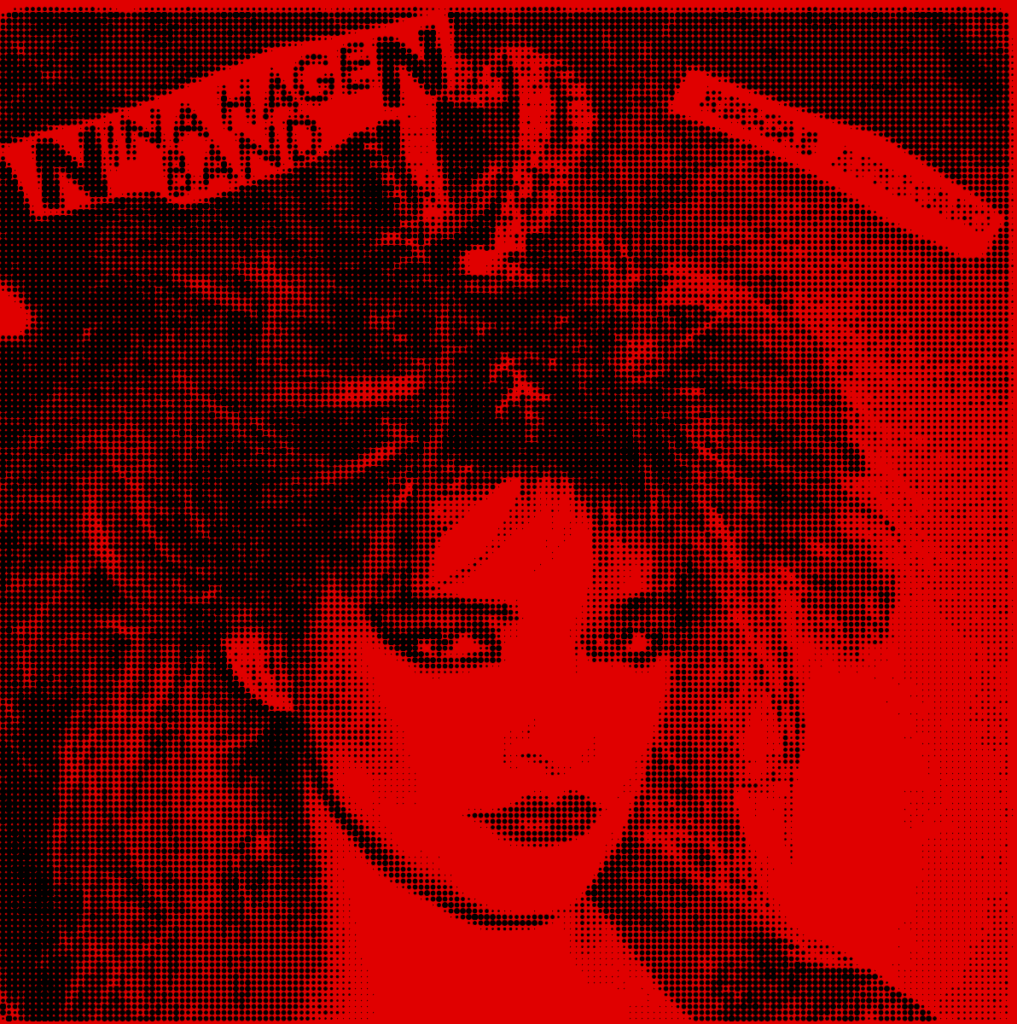


Catharina “Nina” Hagen, one of the most iconic German singers, songwriters, and actress, has left an incredible mark on the music industry. With her theatrical vocals and captivating performances.
Known as “The Godmother of German Punk,” Hagen rose to prominence during the punk and Neue Deutsche Welle movements in the late 1970s and early 1980s. This comprehensive guide delves into the life and career of Nina Hagen, exploring her vocal prowess, discography, and the journey from East to West Germany. From her early life and emergence as a punk icon to her international breakthrough and creative endeavors in the 2000s and 2010s, we uncover the legacy of a true musical trailblazer.
Born in East Berlin, East Germany, in 1955, Nina Hagen, the daughter of Hans Oliva-Hagen and Eva-Maria Hagen, came from a family with connections to the arts. Her father survived the Holocaust and her grandfather, a Jewish man, tragically perished at a concentration camp during World War II.
Hagen’s talent and passion for music were evident from a young age, as she studied ballet and exhibited opera prodigy-like abilities.
During her formative years, a significant turning point occurred when her mother became involved with anti-establishment singer-songwriter Wolf Biermann. Biermann’s political views would later shape Hagen’s own beliefs and perspectives.
At 16, she left school to pursue a music career, performing with the cover band Fritzens Dampferband and eventually gaining recognition in East Germany with her hit song “Du hast den Farbfilm vergessen.”



In 1976, Hagen’s family emigrated to West Germany following her stepfather’s expulsion from East Germany. Her application to leave the country, claiming a connection to Wolf Biermann, led to her swift approval to rejoin her father in the West. Settling in Hamburg, she signed with a CBS-affiliated record label and journeyed to London during the peak of the punk rock movement.
In 1977, Hagen formed the Nina Hagen Band in West Berlin’s Kreuzberg district. The band’s eponymous debut album, released in late 1978, garnered attention for its hard rock sound and Hagen’s theatrical vocals. However, tensions within the band led to her departure in 1979. Despite this, the album Unbehagen, produced in collaboration with the band, included the hit single “African Reggae.”
The 1980s marked Hagen’s international breakthrough as she released her first English-language album, NunSexMonkRock, in 1982. This groundbreaking album featured a unique fusion of punk, funk, reggae, and opera, showcasing Hagen’s diverse vocal abilities. The album’s success propelled her to embark on a global tour with the No Problem Orchestra.
In 1983, Hagen released Angstlos, another critically acclaimed album with club hits like “Zarah” and “New York New York.” As her fame grew, she became renowned for discussing diverse topics such as God, UFOs, animal rights, and her political beliefs, further solidifying her status as an influential and provocative artist.
During the 1990s, Hagen continued to captivate audiences with albums like Street (1991) and Revolution Ballroom (1993). She collaborated with various artists, including Rosenstolz and Marc Almond, and also ventured into voice acting for films.
The 2010s brought new creative endeavors for Hagen. Her album Personal Jesus (2010) was followed by Volksbeat (2011), demonstrating her enduring creativity and relevance in the music scene. Notably, her song “Du hast den Farbfilm vergessen” was selected by Angela Merkel for her Großer Zapfenstreich military leaving ceremony in December 2021, a testament to Hagen’s enduring impact on German culture.
Nina Hagen’s artistic journey continued with the announcement of her first new album in 11 years. Unity, released in December 2022 via Grönland, features 12 tracks, including the lead single “16 Tons” with a music video directed by Sebastian Vogt.
Unity holds special significance as Hagen’s first album since Volksbeat in 2011. Despite not being well received by Daniel Dylan Wray and MusicWaves, the title track, “Unity,” features funk legend George Clinton and serves as an homage to the Black Lives Matter movement. Collaborations with Jamaican singer Liz Mitchel and new wave musician Lene Lovich result in the creation of the powerful track “United Women of World.”
As Hagen’s musical journey continues, her legacy as “The Godmother of German Punk” endures. Her influence on the punk and Neue Deutsche Welle movements, her vocal prowess spanning six octaves, and her unapologetic artistic expression make her a true musical trailblazer.
Nina Hagen’s unwavering commitment to self-expression and individuality serves as an inspiration to generations of artists and music enthusiasts alike, solidifying her place in the pantheon of music legends.
Nina Hagen’s influence on the music industry extends far beyond her unique vocal abilities and eccentric performances. As “The Godmother of German Punk,” she played a pivotal role in shaping the punk and Neue Deutsche Welle movements in Germany. Her fusion of punk, opera, funk, and reggae created a distinct sound that pushed the boundaries of conventional music.
Hagen’s theatrical stage presence and fearless approach to addressing political and social issues earned her a dedicated fan base and a place in music history. Her music empowered listeners to challenge authority and embrace individuality. In a male-dominated punk scene, Hagen’s boldness and charisma served as an inspiration for female artists and fans alike.
Throughout her career, Hagen collaborated with a diverse range of musicians and artists, further highlighting her ability to transcend genres and connect with different audiences.
Her collaborations with legends like George Clinton and contemporary artists like Liz Mitchel demonstrate her enduring relevance and artistic adaptability.
If you havent seen it, you should take a look at Merkel’s farewell as chancellor, where Nina Hagen’s “Du hast den farbfilm Vergessen” was chosen as her song.
Beyond her music career, Nina Hagen’s creativity extended to acting and voice acting. Her involvement in films like “Cha Cha” (1979) and her voice roles in “The Nightmare Before Christmas” and “Spirited Away” showcased her versatility as an artist. Her passion for the arts also led her to perform in theater productions, further solidifying her reputation as a multifaceted performer.
Hagen’s advocacy for animal rights and her commitment to social and political causes demonstrated her dedication to making a positive impact on the world. She used her platform to speak out on issues close to her heart, earning her respect from fans and fellow artists.
Notably, Nina Hagen’s vocal range is a testament to her exceptional talent. As a mezzo-soprano, she possesses a vocal range spanning six octaves and one note, showcasing an incredible vocal versatility rarely seen in the music industry. Her ability to hit a low G#1 in the performance of “Don’t Blame the Crocodile” and reach a high B7 in “Super Freak Family” remains a remarkable feat.
Her operatic training combined with punk and rock elements created a distinctive vocal style that set her apart from her contemporaries. Hagen’s vocal prowess contributed significantly to the uniqueness of her music and performances, earning her praise from critics and fellow musicians alike.
Despite the passage of time, Nina Hagen’s impact on the music world remains timeless. Her contributions to punk and Neue Deutsche Welle have inspired countless musicians, both in Germany and internationally.
The spirit of rebellion and individuality she embodied continues to resonate with new generations of artists seeking to break barriers and challenge norms.
Hagen’s influence extends beyond music, transcending generations and borders. Her fearless attitude and unwavering commitment to self-expression have made her an icon for those embracing their individuality and artistic freedom.
As a trailblazer, Nina Hagen’s legacy continues to shape the trajectory of music and art, leaving an indelible mark on the cultural landscape.
NunSexMonkRock (1982): Nina Hagen’s debut solo album introduced her unique fusion of punk rock, new wave, and opera influences. The album’s tracks, including “Born in Xixax” and “Smack Jack,” showcased her distinctive vocal range and theatrical performance style.
In Ekstasy (1985): With this album, Hagen delved into electronic and dance music, exploring themes of love, spirituality, and self-expression. Tracks like “Universal Radio” and “Spirit in the Sky” exemplified her ability to incorporate diverse musical elements.
Fearless (1983): This album continued Hagen’s exploration of electronic and dance music, featuring tracks like “Zarah” and “New York New York.” Her energetic and passionate vocals remained a central feature of the album’s sound.
Get notified about new articles